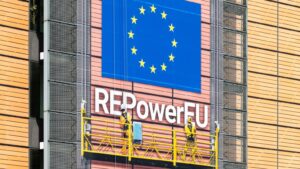Energy security is one of the three goals of European energy policy, alongside affordability and environmental sustainability, and one of the five dimensions of the Energy Union. Recent geopolitical developments have heightened concern about it and prompted a number of reactions from various European institutions.
During the negotiations on the ‘Hydrogen and Decarbonised Gas’ package, Parliament and the Council called for a more in-depth review of the regulation on security of gas supply. On March 22th 2024, the European Council underlined the imperative need to strengthen and coordinate military and civilian preparedness and invited the Commission to ‘propose actions to strengthen crisis preparedness and response at EU level’.
The Council conclusions of May 30th on electricity grid infrastructure invited the Commission to ‘carry out a targeted legislative review to further strengthen the EU’s long-term security of electricity supply architecture’.
In his April 2024 report, Enrico Letta also called for a ‘systematic review of the security of gas supply framework’.
The European Commission is therefore carrying out a fitness check to assess the effectiveness, efficiency, coherence, relevance and added value of existing European legislation.
In particular, the fitness check will allow the Commission to assess the performance of the EU’s security architecture during the energy crisis and support the transition to clean energy, as well as to identify any shortcomings, synergies and efficiency gains within its legislative framework.
This could benefit ongoing sectoral integration as well as reduce administrative burdens.
This assessment will also look at how cooperation with neighbouring countries has worked, in particular with the contracting parties of the Energy Community.
In addition to assessing how the EU’s energy security architecture has worked in the past, the fitness check is also intended to verify its continued relevance, taking into account the dynamic changes underway in the EU’s energy system.
For example, the decarbonisation and electrification of the energy system can bring new opportunities, but also new challenges: more distributed and decentralised energy production, greater concentration of energy production in more intermittent energy sources, and vulnerability of critical energy infrastructure to natural or man-made disasters.
Greater cross-sector and cross-border integration can also bring new challenges and risks (greater likelihood of cascading failures), as well as possible benefits for energy security.
The revision of the EU’s energy security framework will also contribute to realising the priorities described in the political guidelines for the next European Commission 2024-2029, such as building a new Clean Industrial Union and a Union of Preparedness.
The Balance Sheet is expected to be adopted by the European Commission in the first quarter of 2025.
Our team is at your disposal for more information.






